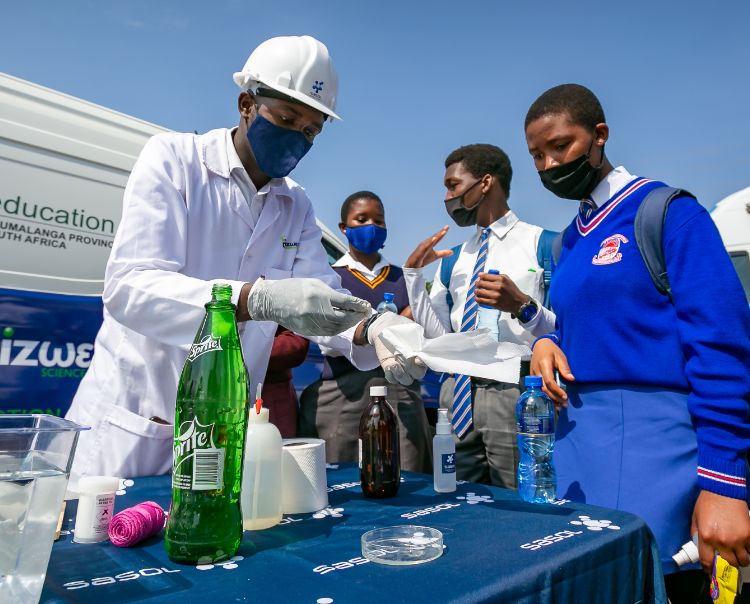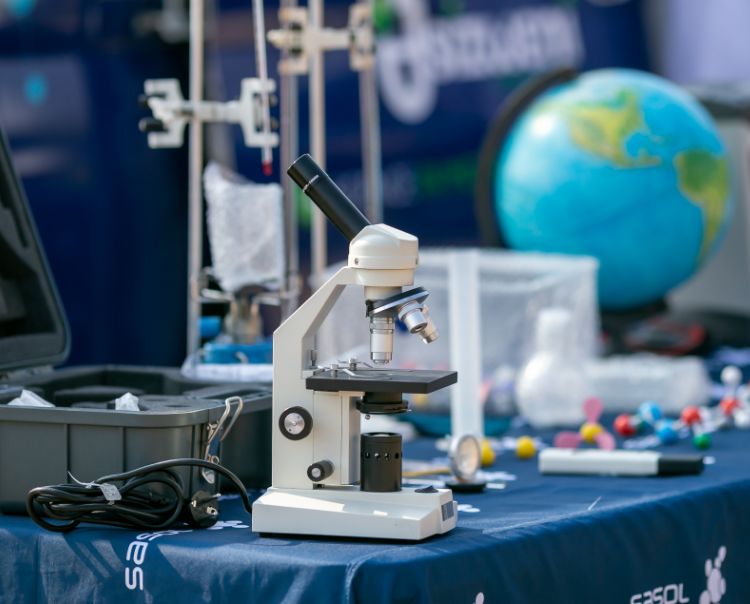We have donated a mobile science laboratory and e-learning support programme to North West University and the Mpumalanga Department of Education to broaden access t learning, especially in rural areas.
We have contributed to the development of a curriculum training manual for coding and robotics. This is now being used to train 200 subject advisors on the Department of Basic Education’s national task team.
Our learner support projects offer 7 000 learners in the Metsimaholo Local Municipality (which includes Sasolburg) extra tuition in the afternoon and over weekends, and through holiday camps.
In Secunda we partnered with Ligbron Academy for Technology to broadcast grades 8 to 12 maths and science lessons to 15 schools in Lekwa and Dipaleseng to help learners catch up on academic time list because of COVID-19.
“
There’s nothing I believe in more strongly than getting young people interested in science & engineering, for a better tomorrow, for all humankind.
“
BILL NYE
A digital revolution is sweeping the world – and South African schools.
Youngsters at our country’s more affluent schools are learning to swim with this irresistible new tide. But at thousands of other schools, learners are in real danger of sinking.
We fully appreciated the pressing need to develop the advanced digital skills of our young people at less advantaged schools and so we jumped at the opportunity to partner with the Department of Basic Education on developing a coding and robotics curriculum for grades R to 9.
We threw our weight behind this really pressing national need by funding the training of subject advisors and the work of the National Training Team. The curriculum was gazetted by the Minister of Basic Education in March 2021.
To date, the pilot for the coding and robotics curriculum has been implemented for grades R to 3 in 200 primary schools and for Grade 7 in 100 schools across the country.


